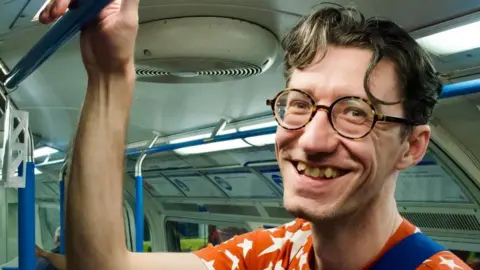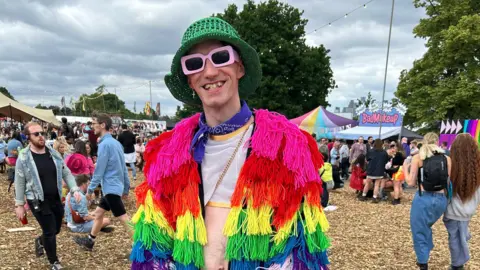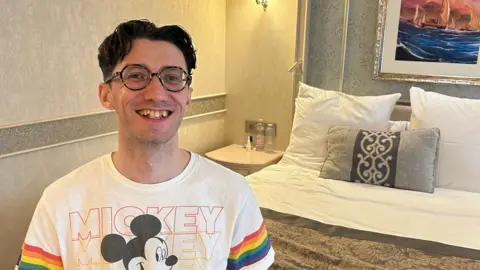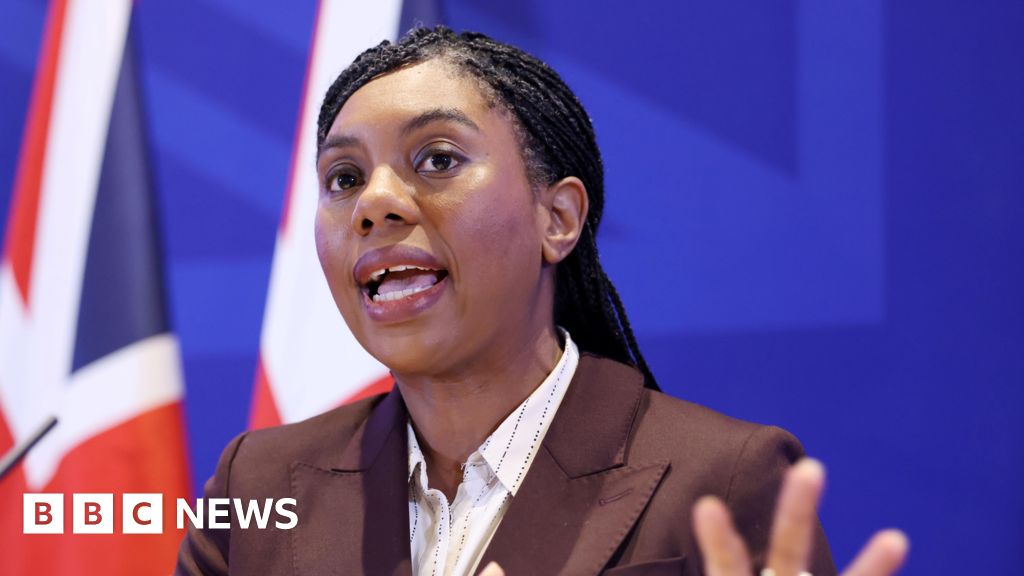Josh Parry
LGBT & Identity Reporter

 Joey Knock
Joey Knock
Joey decided to pay a private pharmacy for a course of gonorrhoea vaccinations in 2024
Gonorrhoea vaccines will be widely available from today in sexual health clinics across the UK, in a bid to tackle record-breaking levels of infections.
The jabs will first be offered to those at highest risk - mostly gay and bisexual men who have a history of multiple sexual partners or sexually transmitted infections.
NHS England say the roll out is a world-first, and predict it could prevent as many as 100,000 cases, potentially saving the NHS almost £8m over the next decade.
The Terrence Higgins Trust, who campaigned for the vaccine to be introduced in the UK, told the BBC it was "a huge win" for sexual health.
Gonorrhoea is a bacterial infection that is transmitted through unprotected sex.
Symptoms can include pain, unusual discharge, inflammation of the genitals and infertility, but in some cases it can have no symptoms at all.
The NHS says it can be avoided by the proper use of condoms and by accepting the vaccine if offered.
Doctors are becoming increasingly worried about the number of infections, and hope the vaccine, which is 30-40% effective, will also help slow the growing number of antibiotic-resistant cases.
The vaccine, known as the 4CMenB vaccine, was designed for preventing meningitis B in babies, but the bacteria that causes the two diseases are so closely related that the jab is also effective against gonorrhoea.
There were more than 85,000 cases of gonorrhoea in 2023 - the highest since records began almost 100 years ago.
One of those diagnosed was Joey Knock, who says the infection gave him diarrhoea, made him feel "wiped out" and led to him taking time off work to recover.
He told BBC News: "I discussed it with my friends and I definitely had worse symptoms [than them] with it.
"I felt really bad, I couldn't keep food down and I just felt totally run down."

 Joey Knock
Joey Knock
Joey says the severity of his gonorrhoea symptoms interfered with daily life
Because he has many sexual partners, the 35-year-old decided to pay a private pharmacy for a course of gonorrhoea vaccinations in February 2024 before travelling abroad to a festival.
He paid £220 and says he's glad he did it.
"It helps knowing that I'm taking control of my sexual health and doing what I can to stay safe and practise safer sex and be much less worried about the severity of the symptoms," he says.
Joey says he uses the protection the vaccine offers him alongside other methods of safer sex, including taking PrEP, a drug which helps prevent HIV, and DoxyPep - antibiotics taken after sex to prevent bacterial STIs, a treatment not widely available on the NHS.
He says he also occasionally uses condoms - but sees the vaccine as an extra tool to keep him safe in situations where he or his partner doesn't want to use them.
Since being vaccinated, Joey has been re-infected with gonorrhoea but says the symptoms were much less severe.
He told the BBC: "I've been able to get on with my day and it has just become something much more manageable, and getting tested regularly and knowing my body really helps too."

 Joey Knock
Joey Knock
Joey says having the vaccine has given him more confidence and has reduced the severity of his symptoms
Matthew, a 63-year-old from East Scotland, was diagnosed with gonorrhoea 10 years ago and had a reaction known as reactive arthritis - extreme pain in your joints caused by your body's reaction to an infection.
He told the BBC that the experience, which has caused lasting damage to some of his fingers and toes, was so painful it's left him fearful of becoming re-infected and has impacted his mental health.
He says: "I'm constantly looking for symptoms and I'm constantly aware of it, and I feel a bit like I used to do in the 1980s when I was constantly fretting about HIV.
"I'd get some sort of cough and think 'oh my god, what's happening?'"
He is hoping to be one of the first people to get a vaccine in order to give himself and his sexual partners more protection.
"You're not just protecting yourself, you're protecting your partners.
"I think it will also relieve some of the burden on sexual health services, it's getting difficult to get appointments so if it can work to reduce the incidence of STIs I think it's really worth it."
Richard Angell, chief executive of the Terrence Higgins Trust, a leading sexual health charity, told the BBC the vaccine was a "remarkable addition to our toolkit on sexual health".
Dr Amanda Doyle, NHS national director for primary care and community services, said it was important "everyone eligible takes up the offer through sexual health services" in order to "keep each other safe".
"It's a real step forward for sexual health," she added.
People who may be eligible for the vaccine are being asked to contact their local sexual health clinic for more information.
.png)
 4 months ago
18
4 months ago
18








 English (US) ·
English (US) ·